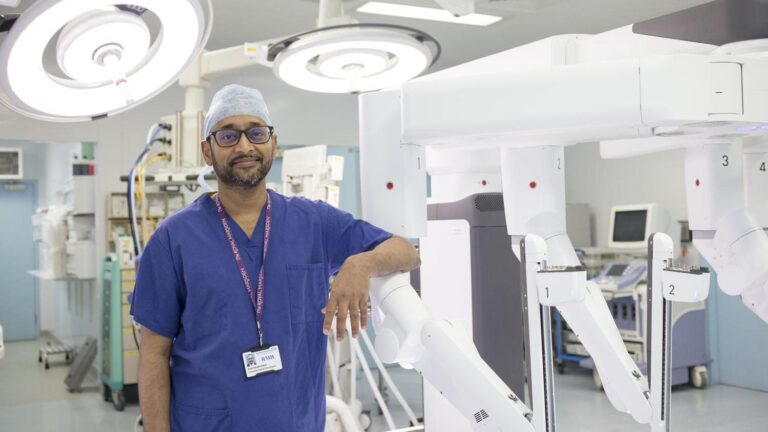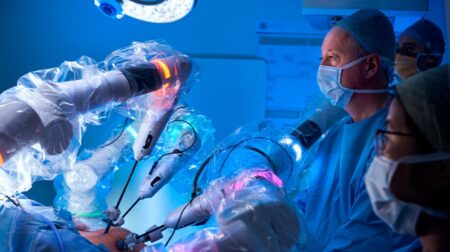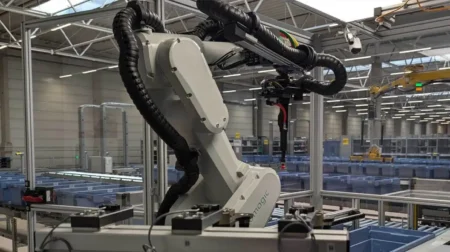Results from the recent ReCurrent Tumours of the Upper Aerodigestive Tract (RECUT) study have revealed that, following transoral robotic surgery (TORS), the survival rate for head and neck cancer patients for the two years post-surgery was almost three quarters (72%).
This rate is reportedly higher than other cancer treatments, such as radiotherapy, chemotherapy or open surgery. These patients had all received an early-stage diagnosis.
The Royal Marsden, which says it pioneered this technique, describes TORS as a minimally invasive surgery, which uses robots to treat head and neck cancers.
RECUT reportedly analysed data from 278 consecutive cases from 16 centres across the UK, Europe, North America and India. All patients had previously been treated for a head or neck cancer with TORS prior to 1 August 2018.
Studies have shown that, following repeat intensity-modulated radiotherapy (IMRT) treatment, which delivers precise doses of radiation tailored to the size of a tumour, between 40 to 50% of patients survive for two years.
This is compared with a rate of 62% for those treated with repeat IMRT and open surgery and a 52% two-year survival rate for patients whose only treatment was open surgery.
Previous research has shown how, following open surgery, 79% of patients with this form of cancer needed a tracheostomy and 75% need a gastronomy.
This differs from the results of the TORS study, wherein just 38% of patients underwent tracheostomies immediately afterwards and 39% received gastronomies.
According to the Royal Marsden, head and neck cancer is the 8th most common form of cancer in the UK, with more than 12,000 cases diagnosed each year.








